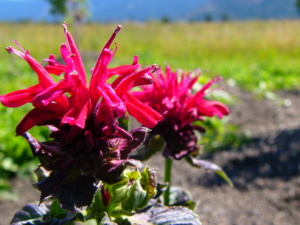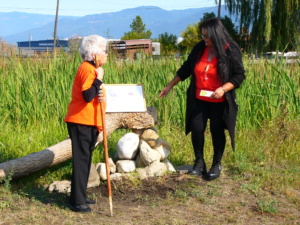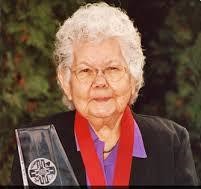Welcome everyone, Weytk!
The BC Small Wetlands Association is a charitable organization working with community partners to offer a broad spectrum of cultural ecological education in collaboration with the Secwepemc community and local school districts, showcasing biodiversity and blending traditional knowledge with western science.
BCSWA promotes social cohesion and the sharing of Secwepemc traditional knowledge through cultural ecological outreach programs for indigenous and non-indigenous youth at risk, accessible and inclusive of people with varying abilities.
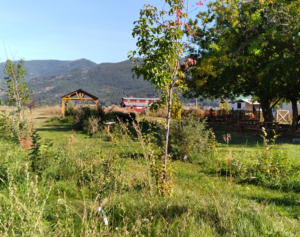 More than one thousand native trees and shrubs have been planted here at Pleasant Valley Wetland Heritage Park, where we are rewilding two acres to recreate a small area of the original wetland and forest that was logged and cleared, then ditched and drained in the late 1800s for agriculture.
More than one thousand native trees and shrubs have been planted here at Pleasant Valley Wetland Heritage Park, where we are rewilding two acres to recreate a small area of the original wetland and forest that was logged and cleared, then ditched and drained in the late 1800s for agriculture.
The Park provides the community with a grassroots living showcase of Secwepemc culture, natural infrastructure and biodiversity conservation to encourage environmental learning and create opportunities for active public involvement in conservation work.
In 2020, with a grant from Tree Canada, we planted an edible trees forest garden at the Park that has a mix of fruit trees, berry bushes, herbs and vegetables. The harvest, shared with the community as well as deer and other wildlife, includes fruit, nuts, edible leaves, medicinal plant products, mulch, seeds and propagation materials.
In October 2021, local middle school students helped to plant a Children’s Grove of 215 trees to honor the missing children of the Kamloops Industrial Residential School.
In April 2023 and 2024 we engaged the local community in the creation of three mini forests here at the Park to demonstrate and promote the benefits of the Miyawaki pocket forest.
We research the culture, land use, the climate and the health of ecosystems historically towards our goals of educating the public on nature based climate change action, sharing the traditional knowledge of the Secwepemc people on interpretive signs and encouraging other landowners to invest in a treed or wetland area on their land.
BCSWA hosts free learning experiences including the BC Wildlife Federation Wetland keepers Workshops held here in June 2022. Park facilities include a viewing platform, large covered pavilion, washroom and parking. We can accommodate gatherings of up to 100 people and we are open year round. Very popular with visitors is Jack the donkey, who loves people especially if they come bringing carrots.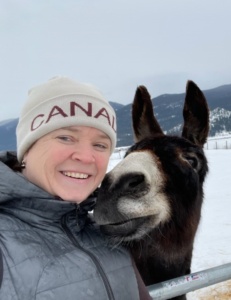
The park is home to many species of wildlife including the red-winged blackbird, blue heron, red-tailed hawk, stoat, osprey, white-tailed deer, racoon, bees, blue dasher dragonfly, western toad, spade foot toad (at risk/endangered species), frogs, garter snakes, newts and salamanders.
Interpretive Signs
Signs throughout the park describe the Secwepemc culturally important native plants, trees and shrubs growing in the park and their traditional uses. The text on the interpretive signs is drawn from the traditional knowledge of beloved Secwepemc Elder Dr. Mary Thomas, documented in “Secwepemc People and Plants” which was co-authored by Mary’s friend and collaborator, Dr. Nancy Turner. On September 30, 2020 the park was officially opened to the public with a dedication to Mary Thomas by her daughter, Bonnie Thomas and cousin Ethel Thomas.
The park signage was originally developed for the Switzmalph Cultural Society in Salmon Arm which was founded by Mary. The signs have a scannable QR code that links to a web page with additional information and ecological requirements of each tree and shrub.
Insights into History
Our location in the Spallumcheen Valley is an area where the Shuswap Nation (Secwepemc) and Okanagan Nation (Syilx) Territories overlapped five thousand years ago. Future park signage will feature insights into Secwepemc and Syilx cultures, traditions and historical land use and their belief that protection of the land and natural resources means the protection of the coming generations.
Wetland Ambassadors
Youth are our wetland ambassadors who work and volunteer in the park, monitoring the wetland ponds, birds, animals, amphibians, insects and plants, learning hands about biodiversity conservation and maintaining a park journal.
The two acre park is open year round to the public during daylight hours.
Caution: Visitors to the park should be aware that the ground is uneven in places. Please proceed with caution and do not walk on the grassed edges of the ponds.
1978 Pleasant Valley Road, Spallumcheen BC, just 1 km south of the Armstrong city limit.
For more information about park programs and public access call or text Barb Craven at 250-517-0335 or e-mail bacraven@telus.net
The Park is managed by the BC Small Wetlands Association
Registered Charity #802617316RR0001
![]()

